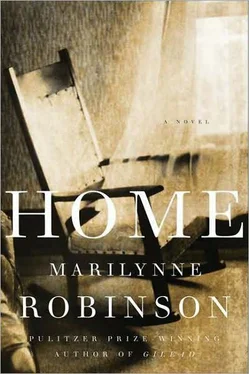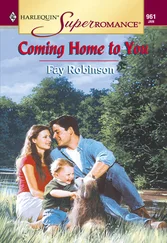For Noah and Elise
and for Beatrice
“HOME TO STAY, GLORY! YES!” HER FATHER SAID, AND her heart sank. He attempted a twinkle of joy at this thought, but his eyes were damp with commiseration. “To stay for a while this time!” he amended, and took her bag from her, first shifting his cane to his weaker hand. Dear God, she thought, dear God in heaven. So began and ended all her prayers these days, which were really cries of amazement. How could her father be so frail? And how could he be so recklessly intent on satisfying his notions of gentlemanliness, hanging his cane on the railing of the stairs so he could, dear God, carry her bag up to her room? But he did it, and then he stood by the door, collecting himself.
“This is the nicest room. According to Mrs. Blank.” He indicated the windows. “Cross ventilation. I don’t know. They all seem nice to me.” He laughed. “Well, it’s a good house.” The house embodied for him the general blessedness of his life, which was manifest, really indisputable. And which he never failed to acknowledge, especially when it stood over against particular sorrow. Even more frequently after their mother died he spoke of the house as if it were an old wife, beautiful for every comfort it had offered, every grace, through all the long years. It was a beauty that would not be apparent to every eye. It was too tall for the neighborhood, with a flat face and a flattened roof and peaked brows over the windows. “Italianate,” her father said, but that was a guess, or a rationalization. In any case, it managed to look both austere and pretentious despite the porch her father had had built on the front of it to accommodate the local taste for socializing in the hot summer evenings, and which had become overgrown by an immense bramble of trumpet vines. It was a good house, her father said, meaning that it had a gracious heart however awkward its appearance. And now the gardens and the shrubbery were disheveled, as he must have known, though he rarely ventured beyond the porch.
Not that they had been especially presentable even while the house was in its prime. Hide-and-seek had seen to that, and croquet and badminton and baseball. “Such times you had!” her father said, as if the present slight desolation were confetti and candy wrappers left after the passing of some glorious parade. And there was the oak tree in front of the house, much older than the neighborhood or the town, which made rubble of the pavement at its foot and flung its imponderable branches out over the road and across the yard, branches whose girths were greater than the trunk of any ordinary tree. There was a torsion in its body that made it look like a giant dervish to them. Their father said if they could see as God can, in geological time, they would see it leap out of the ground and turn in the sun and spread its arms and bask in the joys of being an oak tree in Iowa. There had once been four swings suspended from those branches, announcing to the world the fruitfulness of their household. The oak tree flourished still, and of course there had been and there were the apple and cherry and apricot trees, the lilacs and trumpet vines and the day lilies. A few of her mother’s irises managed to bloom. At Easter she and her sisters could still bring in armfuls of flowers, and their father’s eyes would glitter with tears and he would say, “Ah yes, yes,” as if they had brought some memento, these flowers only a pleasant reminder of flowers.
Why should this staunch and upright house seem to her so abandoned? So heartbroken? The eye of the beholder, she thought. Still, seven of her father’s children came home as often as they could manage to, and telephoned, and sent notes and gifts and crates of grapefruit. Their own children, from the time they could grasp a crayon and scrawl, were taught to remember Grandpa, then Great-grandpa. Parishioners and their children and grandchildren looked in on her father with a faithfulness that would have taxed his strength if the new minister had not hinted at the problem. And there was Ames, her father’s alter ego, in whom he had confided so long and so utterly that he was a second father to them all, not least in the fact of knowing more about them than was entirely consistent with their comfort. Sometimes they made their father promise not to tell anyone, by which he knew they meant Reverend Ames, since he was far too discreet to repeat any confidence, except in the confessional of Ames’s stark bachelor kitchen, where, they suspected, such considerations were forgotten. And what was their father not to tell? How they informed on Jack, telling him what Jack had said, what Jack had done or seemed inclined to do.
“I have to know,” their father said. “For his sake.” So they told on their poor scoundrel brother, who knew it, and was irritated and darkly amused, and who kept them informed or misinformed and inspired urgent suspicions among them which they felt they had to pass on, whatever their misgivings, to spare their father having to deal with the sheriff again. They were not the kind of children to carry tales. They observed a strict code against it among themselves, in fact, and they made an exception of Jack only because they were afraid to do otherwise. “Will they put him in jail?” they asked one another miserably when the mayor’s son found his hunting rifle in their barn. If they had only known, they could have returned it and spared their father surprise and humiliation. At least with a little warning he could have composed himself, persuaded himself to feel something less provocative than pure alarm.
But no, they did not put him in jail. Jack, standing beside his father, made yet another apology and agreed to sweep the steps of the city hall every morning for a week. And he did leave the house early every morning. Leaves and maple wings accumulated at city hall until the week was over and the mayor swept them up. No. His father would always intercede for him. The fact that his father was his father usually made intercession unnecessary. And that boy could apologize as fluently as any of the rest of the Boughtons could say the Apostles’ Creed.
A decade of betrayals, minor and major, was made worse by awareness on every side that they were all constantly alert to transgression and its near occasion, and made worse still by the fact that Jack never repaid them in kind, though this may only have been because their own mischief was too minor to interest him. To say they shared a bad conscience about Jack to this day would be to overstate the matter a little. No doubt he had his own reasons for staying away all these years, refusing all contact with them. Assuming, please God, he was alive. It was easy to imagine in retrospect that Jack might have tired of it all, even though they knew he made a somber game of it. Sometimes he had seemed to wish he could simply trust a brother, a sister. They remembered that from time to time he had been almost candid, had spoken almost earnestly. Then he would laugh, but that might have been embarrassment.
They were attentive to their father all those years later, in part because they were mindful of his sorrow. And they were very kind to one another, and jovial, and fond of recalling good times and looking through old photographs so that their father would laugh and say, “Yes, yes, you were quite a handful.” All this might have been truer because of bad conscience, or, if not that, of a grief that felt like guilt. Her good, kind, and jovial siblings were good, kind, and jovial consciously and visibly. Even as children they had been good in fact, but also in order to be seen as good. There was something disturbingly like hypocrisy about it all, though it was meant only to compensate for Jack, who was so conspicuously not good as to cast a shadow over their household. They were as happy as their father could wish, even happier. Such gaiety! And their father laughed at it all, danced with them to the Victrola, sang with them around the piano. Such a wonderful family they were! And Jack, if he was there at all, looked on and smiled and took no part in any of it.
Читать дальше












